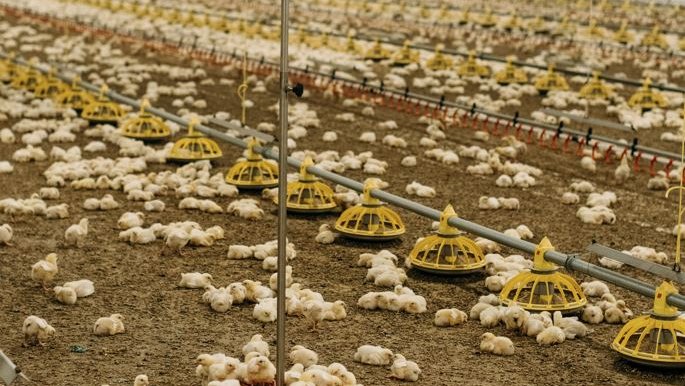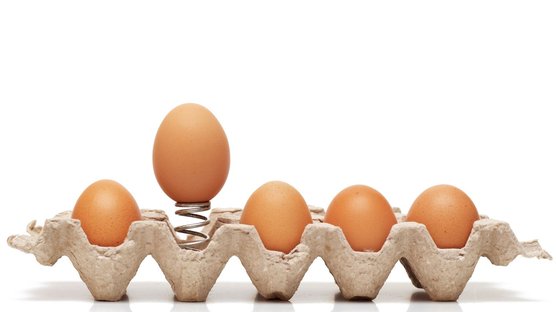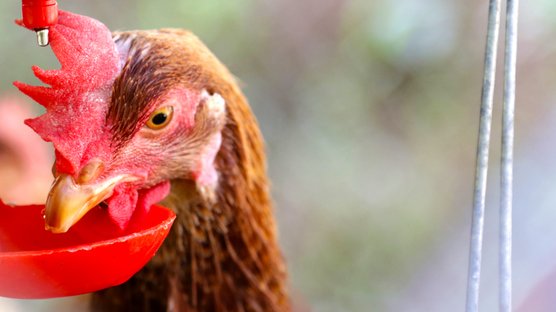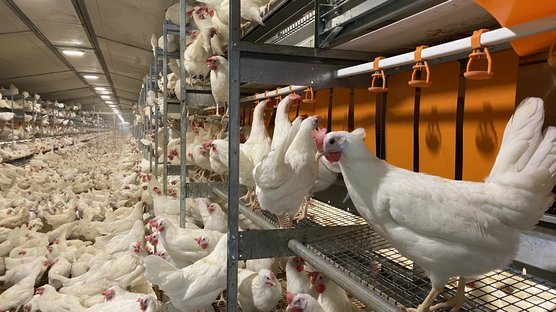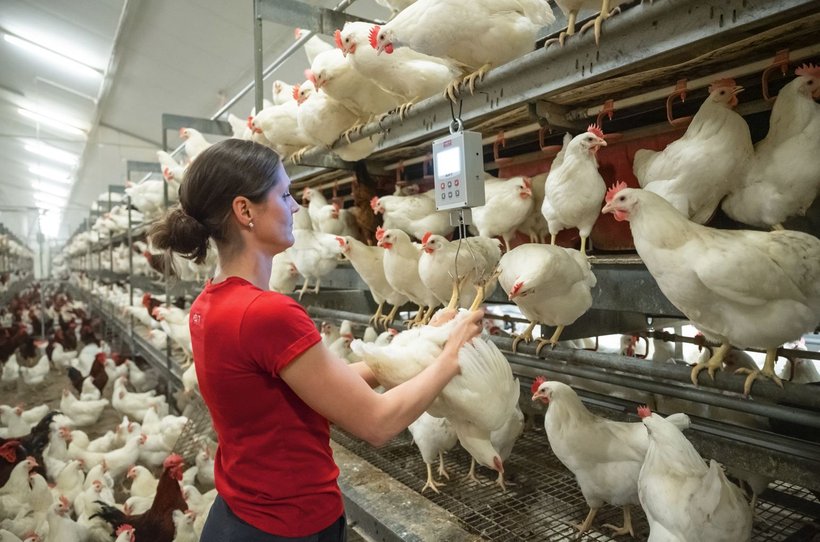
Published on Jan. 15, 2025
The Role of Accurate Weighing
Effective management of laying hens hinges on a comprehensive understanding of their development and health, which is where accurate weighing plays a crucial role. Across the different poultry species and their housing systems, weighing practices vary, but all methods fall into two primary categories: manual and automatic. For laying hens, the accuracy and frequency of measuring body weights is crucial in ensuring both optimal performance and profitability.
Weighing Methods: Manual vs. Automatic
Manual Weighing involves direct handling of the birds, allowing pullet growers and egg producers to assess not only weight but also the physical condition of the chicks pullets / hens. This method typically involves taking samples at scheduled intervals to gather data on the flock's overall health and growth. While manual weighing provides valuable insights, it is labour-intensive and prone to human error.
Automatic Weighing, on the other hand, offers continuous, operator-free data collection throughout the hens' lifetime (when installed in both rearing farms and production farms. This method uses advanced scales equipped with remote data transmission, which integrates seamlessly with poultry management systems. Such systems enable real-time monitoring and data analysis, facilitating more informed decision-making without the constant need for manual input.
The effectiveness of weighing methods is highly dependent on the quality of the equipment used. Not all scales are suitable for poultry; some analogue and digital scales may lack the accuracy or design efficiency required for reliable results.
Importance of Body Weight Data for Parent Stock and Laying Hens
Accurate weight data is critical for managing parent stock and commercial laying hens, as it directly impacts (hatching) egg production and overall profitability. Key indicators include the daily laying percentage, but also the consistency of egg production, which can be influenced by the hens' growth and development. Regular, precise weighing during the rearing period, helps ensure that laying hens are developing properly, which in turn supports optimal laying performance later on in life. But also for parent stock, having accurate data on body weight and body weight development available allows you to steer the flock into production. Proper weight gain during the rearing phase is essential for hens to reach optimal reproductive maturity, which directly impacts egg production and quality. Additionally, monitoring weight helps identify any health issues early, such as disease or nutritional deficiencies, which can be addressed promptly to prevent long-term problems. If the body weights are not on target, it could be considered to delay the flock to come into lay, to allow them more time to develop.
For example, deviations in bodyweight can signal issues with feed intake or health, potentially leading to suboptimal egg production as of over or underweight. By maintaining accurate weight records, rearing farmers and egg producers can make timely adjustments to feeding programs or environmental conditions to address any concerns before they affect the flock's productivity. Accurate weighing on a frequent bases will also allow you to see the impact of vaccinations, heat stress, diet changes and transfer.
Also during the production phase it is strongly advised to continue measuring the body weights. Laying hen continue to grow till the age of around 35 weeks. From that age onwards, body weight recording can become less frequent, but still once per month is advised. It allows you to monitor the overall condition of your flock, so you can steer in time with management when you observe your flock is loosing it’s body condition score, or becoming fat.
Investing in Quality Weighing Systems
When equipping a poultry house, investing in specialized scales should be as prioritized as other essential equipment like feeders, water supplies, and climate control systems. High-quality weighing systems, though often a small fraction of the total equipment budget, are crucial for maximizing the efficiency and profitability of a poultry operation.
Specialized scales not only enhance the accuracy of weight data but also contribute to better overall management practices. Egg and poultry producers around the world recognize the value of reliable weighing systems in maintaining optimal flock performance and protecting profit margins. By investing in advanced weighing technology, farmers can ensure that their laying hens reach their full potential, resulting in increased productivity and profitability.
In conclusion, accurate weighing is a fundamental component of effective laying hen management. By choosing the right equipment and leveraging precise data, farmers can enhance their operations, safeguard their investments, and achieve superior results in egg production.
This article was created by the experts from https://www.veit.cz/
Images also by VEIT Electronics
